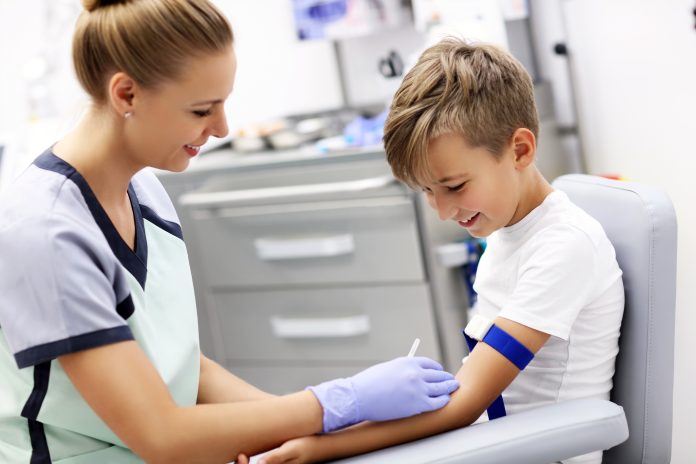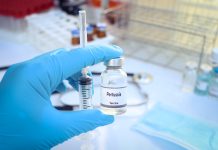NHS hospitals are piloting a rapid 15-minute blood test to distinguish viral vs bacterial infections in children, enabling faster diagnosis and treatment of serious illnesses like sepsis and meningitis
NHS England is launching this winter trials of a groundbreaking 15-minute blood test in three hospitals, aimed at rapidly distinguishing between viral and bacterial infections in children. This faster diagnostic tool could significantly expedite treatment decisions for life-threatening conditions, such as sepsis and meningitis, potentially saving lives and reducing unnecessary antibiotic use.
15-minute rapid blood test to improve patient care
When a child arrives in the hospital with a fever, clinicians will determine whether the condition is minor or life-threatening. However, the most likely type of infection can only be confirmed by a blood test, which needs to be analysed by the lab and may take a few hours. During this time, children may be given antibiotics or other treatment until a complete diagnosis can be made, which takes time and resources, or they may be diagnosed with a minor illness.
This new, faster blood test takes only 15 minutes to determine whether an infection is viral or bacterial, providing doctors with rapid information and cutting the time to diagnose illnesses. The patients can be treated more quickly, and unnecessary antibiotics can be avoided.
Trialling the rapid blood test across children’s hospitals
Now, NHS England is trialling the test on children treated at the emergency departments in Alder Hey Children’s NHS Foundation Trust, St Mary’s Hospital in London, and Great North Children’s Hospital in Newcastle to see whether rapid tests like this can help doctors and nurses make faster decisions.
Initial feedback from doctors is positive, with many citing the benefits of the test, including in a child with meningococcal meningitis, who could be treated much more quickly as a result, and in a child with sepsis, who could start antibiotics straight away.
Expert commentary
Professor Simon Kenny, National Clinical Director for Children and Young People at NHS England, said: “Quick diagnosis is crucial in ensuring patients get the most effective treatment, particularly for children who may have a potentially life-threatening illness.
“Innovations like the 15-minute blood test speed up diagnosis and allow focused treatment, as well as freeing up resources to treat more patients, so it’s great we’re able to trial the test this winter when the NHS is at its busiest.
“These pilots are a crucial step in testing new technology so that innovations with the most impact can be rolled out to improve care for more NHS patients further.”
Minister for Public Health and Prevention, Ashley Dalton, said:“When a child arrives at the hospital with a fever, worried parents deserve answers quickly, and clinicians need the right tools to provide the best care.
“This trial could be transformative – helping doctors make faster, more accurate decisions when every second counts.
“It’s part of our mission to build an NHS fit for the future, using innovation and technology to improve patient care and ease pressure on our hardworking staff during the busiest times of year.”
Dr Charlotte Durand, Consultant in Paediatric Emergency Medicine at Alder Hey Children’s NHS Foundation Trust in Liverpool, said: “We have seen first-hand how this innovation can make a vital difference to children in the Emergency Department.
“We’re delighted to be involved in this groundbreaking study and hope to help ensure this test is brought into standard clinical practice – it could have a massive impact on the emergency care of paediatric patients.”
Dr Emma Lim, Consultant Paediatrician at the Great North Children’s Hospital in Newcastle upon Tyne, said: “Every year, thousands of worried parents bring their children with a fever to hospital.
“Often, it turns out to be nothing serious — but it’s hard to know in the moment. A quick and reliable test like this can help doctors make faster decisions, and reduce the need for unnecessary antibiotics, which is better for patients, parents, and the NHS.”











